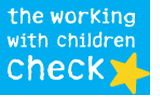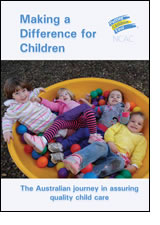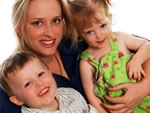| |

Exploring Reggio Emilia
An educational philosophy focused on preschool and primary education
 The Reggio Emilia approach was started by Loris Malaguzzi and parents in the villages around Reggio Emilia in Italy following the devastating effects of World War II. The Reggio Emilia approach was started by Loris Malaguzzi and parents in the villages around Reggio Emilia in Italy following the devastating effects of World War II.
After the war, parents and educators sought a new approach to teaching their children based on the idea that a child's early years of development have a significant impact on who they become in later life.
With this as their foundation they created a program built on the principles of respect, responsibility, and community through exploration and discovery in a supportive and enriching environment based on the interests of the children through a self-guided curriculum.
The Reggio Emilia approach has been widely adopted across the globe and is based on five key principles:
» Read the full article… |

Curtain Cords – Silent Killers
ACCC safety alert
 This month we are delighted to present an opinion piece about blind and curtain cord safety by: This month we are delighted to present an opinion piece about blind and curtain cord safety by:
Mr Peter Kell
Deputy Chairman
Australian Competition & Consumer Commission (ACCC)
Blind and curtain cords have been responsible for 15 deaths in Australia since the early 1990s, with two fatalities as recently as August and October 2009. These are tragedies that can be easily avoided.
Loose blind and curtain cords or chains - particularly those with loops - are dangerous, especially to young children.
Deaths have occurred where loose cords are hanging near cots or furniture children can climb on. On these occasions the children are likely to have played with the cords as if they were a toy. Unfortunately the children become tangled amongst the cords and are strangled.
The Australian Competition and Consumer Commission (ACCC) has national responsibility for product safety in the marketplace.
Our simple message is that loose blind and curtain cords can kill. Fix them out of reach so kids are out of danger.
The ACCC is leading a national campaign urging people to check and fix dangerous blind and curtain cords. We’ve invited suppliers, landlords, housing providers and community groups to play their part to help us get the message out and keep Australian children safe.
Here are our four key steps to ensure that blind and curtain cords do not pose a threat to children in your child care centre:
» Read the full article… |

NSW Working With Children Check
Changes that may impact you and your child care business
 A number of changes have been made to the Working with Children Check in NSW in response to the Special Commission of Inquiry into Child Protection and will take effect as of March 31st 2010. A number of changes have been made to the Working with Children Check in NSW in response to the Special Commission of Inquiry into Child Protection and will take effect as of March 31st 2010.
Working with Children Checks will now be required for:
- Adults who live with foster carers and family day care providers who are licensees of child care services
- Students involved with practical training placements with the Department of Community Services
- Adults who volunteer their services to provide personal care for disabled children and who are involved in mentoring programs for disadvantaged children will require a Working with Children Check before they can commence in these roles
The Working with Children Check has been streamlined so it is easier to understand the check and forms can be completed online and downloaded for signing.
For more information please visit the NSW Commission for Children and Young People website.
The Commission is planning information sessions and training to help organisations understand and implement checking. To express your interest please contact the Commission by emailing kids@kids.nsw.gov.au
|

New NCAC Book:
Learning from our child care history
 The National Childcare Accreditation Council (NCAC) has released a new book designed to highlight the importance of high quality early learning and care in Australia. The National Childcare Accreditation Council (NCAC) has released a new book designed to highlight the importance of high quality early learning and care in Australia.
The Minister for Early Childhood Education and Child Care, Kate Ellis, launched the book which is titled Making a difference for children: The Australian journey in assuring quality child care.
The book examines the development of early childhood services in Australia over the last century.
Ms Ellis said the book offers an opportunity to look back and see what lessons can be learnt from Australia’s precious child care experiences:
"Making a difference for children is a century’s worth of information on the development of early childhood education and child care services in Australia, making it a treasure trove.
This retrospective demonstrates the importance of constantly pushing to lift the quality of early learning and care for young children and their families across Australia," Ms Ellis said.
For more information about the book or to purchase a copy visit the NCAC website or call 1300 136 554.
|

Interview
Nesha O'Neil - Director
National Work-Life Balance Award Winner:
Norwest Child Care Centre &
Top Ryde Early Learning Centre (NSW)
 Child care professionals share a commitment to improving society by creating dynamic and nurturing care environments for Australia's youngest learners. Child care professionals share a commitment to improving society by creating dynamic and nurturing care environments for Australia's youngest learners.
Read this month's Child Care Person in the spotlight Nesha O'Neil is Director of the Norwest Child Care Centre in Baulkham Hills and the Top Ryde Early Learning Centre in Top Ryde, NSW.
The Norwest Child Care Centre just won a national Work-Life Balance Award.
» Read the interview…
|
 If you or someone you know deserves to be featured in this section drop us a line at editor@careforkids.com.au. If you or someone you know deserves to be featured in this section drop us a line at editor@careforkids.com.au.
Each child care person we profile will receive a copy of Play School Collection (3 DVD set) for their service.
Courtesy of ABC Kids and Roadshow Entertainment.
|

Nutrition In Child Care
How do services best provide nutritious and enjoyable food for children?
 This article on childhood nutrition in child care services has been provided by registered nutritionist Leanne Cooper. Leanne is the Director of Cadence Health and a childhood nutrition spokesperson and advisor. This article on childhood nutrition in child care services has been provided by registered nutritionist Leanne Cooper. Leanne is the Director of Cadence Health and a childhood nutrition spokesperson and advisor.
In Australia some state governments provide only broad statements regarding child care legislation relating to nutrition. For example, Queensland centres are required to provide 'adequate and nutritious food' for children in their care. Exactly how you should do this isn't stated, though the upside I suppose is the degree of flexibility afforded by these guidelines.
New South Wales and Victoria however require centres to provide at least 50% of recommended dietary intake (RDI) of nutrients; Western Australian centres are required to provide 50-67% of RDI of all nutrients; and South Australian centres are required to provide 67% of daily food requirements (Radcliff et al, 2002). The findings vary on how well centres meet these requirements, with some showing that the dietary guidelines are being met and others finding that they are not.
Ideally children require around 50% of their daily nutritional needs to be meet during their time in care, though this tends to apply more to long day care. However, there are some issues that make this a little tricky:
- Having a nutritionist on staff is extremely rare, and the only way a provider is likely to have access to such services is via parental support.
- Each child will differ in their needs and if you are to provide the number one dietary guideline: Variety, then assessing a large variety of meals would be costly and time consuming.
- What each child eats both in care and at home will change what their actual nutritional needs are.
To expect a centre to number crunch its meals is not only unrealistic but illogical: So how do centres best provide nutritious and enjoyable food for their children?
Let's take a look at a few tips that might simplify this process and make it achievable.
» Read the full article… |

Work Experience Program
Don’t forget about ChildcareJobs.com.au
free job ad posting
 With a shortage of qualified child care staff it is essential we all participate in student work experience programs for the long term benefit of the industry.
With a shortage of qualified child care staff it is essential we all participate in student work experience programs for the long term benefit of the industry.
To take advantage of the ChildcareJobs.com.au Work Experience Program register here and once your account is activated email us to say you want to post a job ad for work experience staff.
It’s that easy…
ChildcareJobs.com.au supporting the child care industry and finding child care professionals a better job |

Featured posts
CareforKids Social
 Nutrition in Child Care
Nutrition in Child Care
FDC rant – can someone tell me the rules
Awesome activities for kids
Latest Events |

Got Some Time Out…
Catch up on back issues of Child Care News
 March 2010
March 2010
February 2010
December 2009
November 2009
October 2009
September 2009
August 2009
July 2009
June 2009
May 2009
March/April 2009
February 2009
|
|
|
|
|